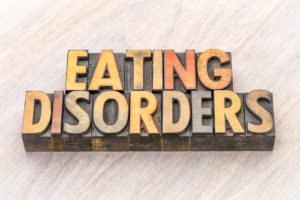
VA Compensation for Eating Disorders — Everything You Need To Know
If you are a military veteran who developed an eating disorder during or after your service, you could be eligible to receive VA disability. Eating disorder veterans’ benefits include monthly compensation, and more. A VA disability advocate can help you collect supporting documents and submit a strong benefit appeal to the VA.
To get VA disability advocacy help, call (888) 373-4722.
Eating Disorders Are Eligible for VA Disability
Joining the military can lead to one of the most rewarding careers a person can have. However, it can also subject you to situations that leave a lasting imprint. The psychological stress of combat and intense military training can lead to cognitive, mental, and mood disorders, including eating disorders.
If you developed an eating disorder while in the service, or if you left the service and later developed an eating disorder as a result of psychological trauma suffered in the military, you could be eligible for VA disability. A VA disability advocate can help you compile a strong appeal for these conditions.
Anorexia Nervosa
Anorexia nervosa is characterized by intentional starvation. A person with anorexia attempts to keep their body weight low by eating nothing or very little.
Bulimia
Bulimia is characterized by eating and vomiting immediately afterward before one’s body can digest the food.
Both conditions pose serious health risks and can lead to long-term damage and even death if not treated. You can receive VA disability for service-connected anorexia nervosa or bulimia, and a VA disability advocate can help. Call (888) 373-4722 for a free case evaluation.
A VA Disability Advocate Can Help You Build a Compelling VA Disability Appeal
A VA disability advocacy group can help you compile a compelling appeal for VA disability based on your service-related eating disorder. If you are not yet service-connected you need to prove three things to the VA to be approved for veterans’ benefits for an eating disorder.
You Are Diagnosed With Anorexia Nervosa or Bulimia
First, you must show that you have a valid diagnosis. The VA Schedule for Rating Disabilities features listings for both conditions, and under each listing is a set of criteria required to be approved for benefits.
A VA disability advocacy group can go through your medical records to assess if you have supporting documentation to prove to VA that you meet the criteria to receive disability for anorexia nervosa or bulimia. If this documentation is lacking in any way, a VA disability advocate can help you collect the evidence you need.
An In-service Event
An event took place during your military service that has either contributed to or caused an eating disorder or you can establish that your symptoms began during service.
There Is a Nexus Between Your Eating Disorder and the In-service Event
The third thing you must demonstrate is that your eating disorder resulted from something specific that occurred during your military service. This event could be a traumatic occurrence during a combat mission, a particularly stressful training exercise, or some other triggering event. If there was not a specific event in service but your symptoms started while you were in the service, you must still establish a medical nexus between the diagnosis you now have and the symptoms during service.
An advocate can examine your service records to identify in-service evidence to show VA that your condition should undoubtedly be service-connected.
For a free case evaluation today, call (888) 373-4722.
Count on a VA Disability Advocacy Group to Help You Receive the Full VA Disability Benefits You Deserve
VA rates your disability based on how severe it is. The more disabling your condition, the higher rating you will receive, and the more compensation you will collect each month.
For a service-related eating disorder diagnosis, you will receive one of five disability ratings: 0, 10, 30, 60, or 100%. Here are the monthly disability compensation rates as of 2019 for a single veteran with no dependents :
- 0% disability rating: $0 per month
- 10% disability rating: $142.29 per month
- 30% disability rating: $435.69 per month
- 60% disability rating: $1,131.68 per month
- 100% disability rating: $3,106.04 per month
The VA assigns one of these ratings based on the following U.S. Code of Federal Regulations criteria:
- 100%: Self-induced weight loss to less than 80% of expected minimum weight, with incapacitating episodes of at least six weeks total duration per year and requiring hospitalization more than twice a year for parenteral nutrition or tube feeding.
- 60%: Self-induced weight loss to less than 85% of expected minimum weight with incapacitating episodes of six or more weeks total duration per year.
- 30%: Self-induced weight loss to less than 85% of expected minimum weight with incapacitating episodes of more than two but less than six weeks total duration per year.
- 10%: Binge eating followed by self-induced vomiting or other measures to prevent weight gain, or resistance to weight gain even when below expected minimum weight, with diagnosis of an eating disorder and incapacitating episodes of up to two weeks total duration per year.
- 0%: Binge eating followed by self-induced vomiting or other measures to prevent weight gain, or resistance to weight gain even when below expected minimum weight, with diagnosis of an eating disorder but without incapacitating episodes.
A VA disability advocate can help you build a compelling appeal and is eager to get started. Call (888) 373-4722 for VA disability advocacy help.
For a Free VA Disability Case Evaluation, Call (888) 373-4722 Today
You do not need to handle this process alone. Call (888) 373-4722 for a free, no-risk VA disability case evaluation.



